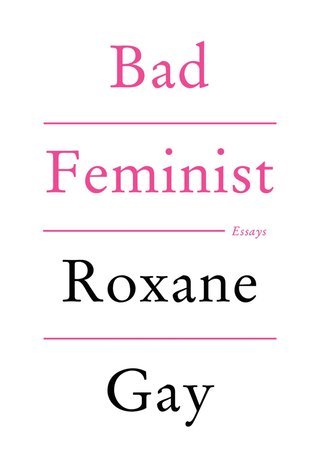Bad Feminist by Roxane Gay (4 Stars, paperback, 320 pages)
Bad Feminist is a collection of compulsively readable essays. Roxane Gay is extraordinarily keyed into popular culture. You will see takes on all of the talking points you might expect from a black woman cultural maven publishing in 2014: Girls, The Hunger Games, Daniel Tosh, Orange is the New Black, “Blurred Lines”, Fifty Shades of Grey, The Help, Django Unchained, 12 Years a Slave, Tyler Perry, Fruitvale Station, Twitter, Abortion, Trayvon Martin, the Boston Marathon Bombing. Some of the topics are older - Flavor of Love, Chris Brown, Twilight, and an adorable obsession with Sweet Valley High - but no less relevant to the conversations she is having. With each of these topics, she takes a look at why they are so popular or so controversial or both, and plainly states what frustrates her about them.
The through-line of the piece examines the standard of perfection required by women, whether they are in the public eye or not. She acknowledges that you can love something and still have significant problems with it. I sometimes feel pressured to disavow a book (or a film, or a celebrity, or a fast food chain, or a political position) entirely if she/he/they/it has a flaw. This is essentially her position with feminism itself - it’s flawed as an ideology and a movement because it’s led by people, and people are flawed. But that doesn’t mean you throw away the principle of equal treatment. You don’t have to abandon feminism entirely because you like pink or you shave your legs or you dance to Robin Thicke’s music. The cultural caricature of feminism is a ridiculous barrier designed to prevent people from embracing a movement that should honestly be a no-brainer.
These essays were released at different times in many different publications, so sometimes the overall effect is a little disjointed if you’re reading it straight through like I did. The essays were ordered very well - her personal life stories were a fairly gentle introduction, lending some effective foreshadowing for events in her life described later, and seeding references to cultural touchstones she dives into with more detail later. There’s an immense focus on popular culture throughout the book, and you will be a little lost if you have not seen or read the media she is reviewing. You can still follow her point, though. Overall, it was well worth reading. I would suggest taking your time with it.

No comments:
Post a Comment